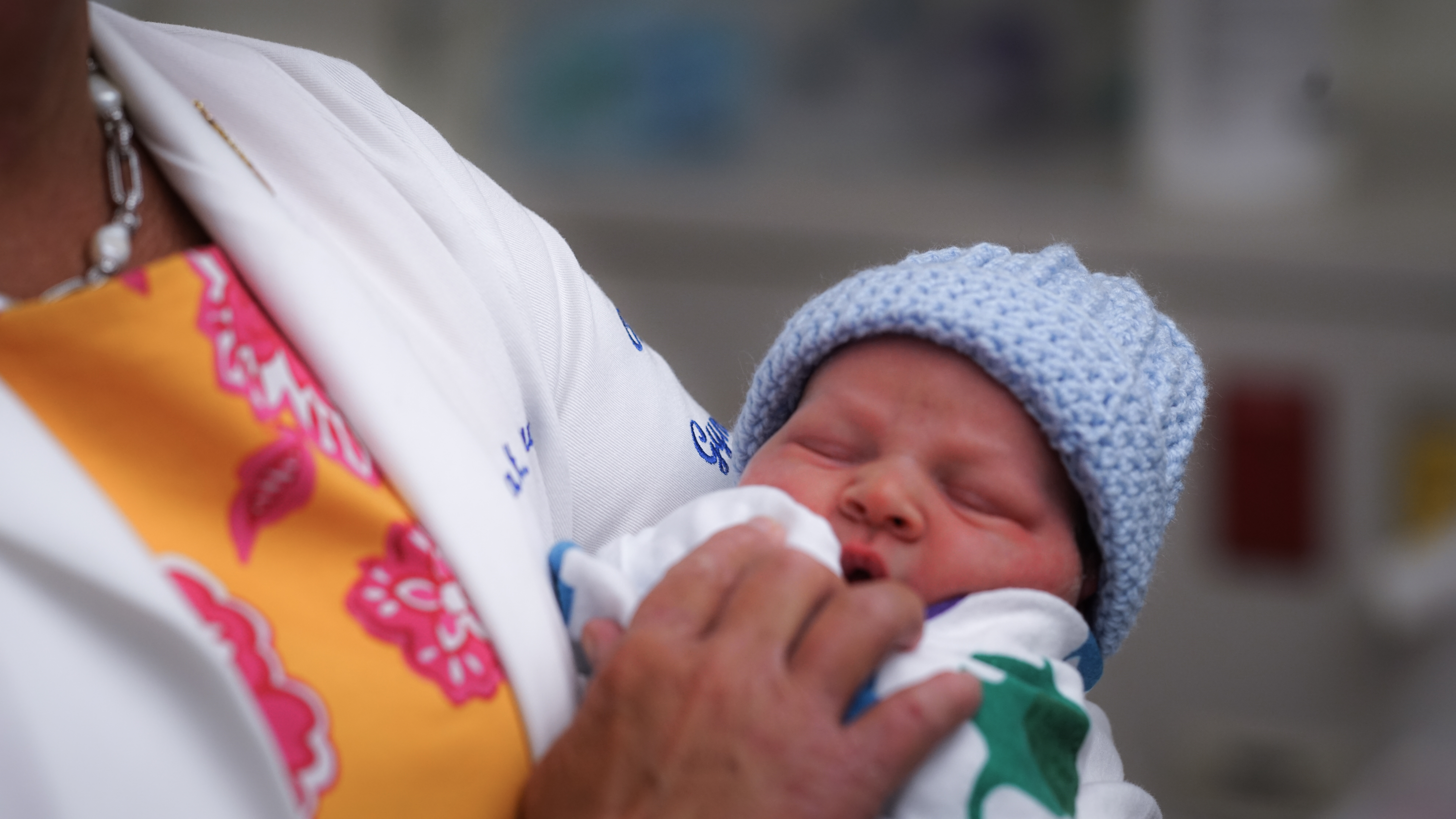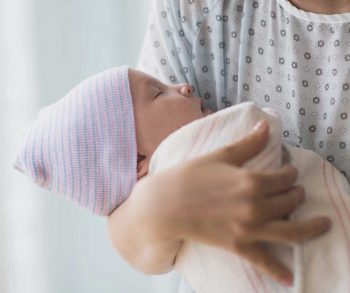Physical Address
To specifically find out more about the cuddler program you can go to http://news.christianacare.org/2015/11/volunteer-cuddlers-ensure-nicu-babies-never-feel-alone/ or call 302-733-1284.
NICU uses volunteer cuddlers to calm premature babies
At Penn Medicine’s Chester County Hospital, a new program offers compassionate, positive care.

It seems intuitive that holding a baby provides comfort, but a recent study found that human touch plays a major role in the progression of infant neurodevelopmental function. Another showed that distressed infants who received less physical contact while in a neonatal intensive care unit (NICU) had slower brain maturation.
The NICU at Penn Medicine’s Chester County Hospital has found an easy way to help offset early trauma and potential developmental delays with a volunteer newborn-cuddling program aimed at soothing premature infants and those suffering from maternal drug-use withdrawal.
Chester County’s Susan Cacciavillano and Stefanie Steinberger spearheaded the effort, applying for a $10,000 grant from Huggies. In November 2017, the hospital launched its infant cuddling program, using the funds to train “cuddlers,” who volunteer in the NICU during the infants’ medical procedures, to ensure patients there receive enough physical contact and stimulation during early brain development. Six months in, the program has already doubled its number of cuddlers, and Cacciavillano, clinical manager of the NICU, says that the program has been smoothly integrated into standard care.
Babies in the NICU often require extensive care and numerous medical procedures. “About 95 percent of care is not intended to be comfortable or pleasurable. It’s intended to keep the babies alive,” says Steinberger, the NICU’s lead physical therapist. “Comforting touch in between and during these procedures decreases the babies’ stress, helps them create bonds, and lets them know that touch can be good instead of bad.”
In addition, this is an important period in the brain development of these children, she says. “We’ve realized that the amount of stress babies receive during NICU stays—which includes whether or not they receive skin-to-skin care to offset all of the needles and tubes—directly impacts their development later in life.”
These infants already face risk for physical and mental delays, particularly if they’ve been born prematurely. To understand the effect of cuddling on babies’ brains, some research has studied NICU infants’ somatosensory systems, which includes the sensory neurons and pathways that respond to changes such as pain and temperature. When prompted by stimulus, sensory receptor cells send signals via a sensory nerve to the spinal cord, where more sensory neurons process the signals before relaying them to the brain.
Researchers from Nationwide Children’s Hospital in Columbus, Ohio, found that in comparison to full-term infants, premature infants who received care in NICUs displayed decreased somatosensory responses to touch. And without positive touch while in the NICU, premature babies exhibited even more severely decreased brain activity when presented with neutral stimuli.
A lack of proper somatosensory system function can worsen existing problems, particularly for premature babies. Early sensory processing allows the infant to learn from experiences such as touch, which forms the foundation for building perceptual and cognitive abilities. The somatosensory system is one of the first to begin developing, and it mediates both social and biological interactions with the mother. Frequent medical procedures can interfere with this mediation.
Infants in Chester County Hospital’s NICU rarely undergo a procedure without supportive touch. If a parent isn’t around, a cuddler likely is, since the hospital staffs them from the early morning hours until 11 p.m. These volunteers hold and rock the babies, and sing, read, and hum to them.
Beyond obtaining hospital-required background clearances and vaccinations, cuddlers must be visibly compassionate, soft-spoken, and hardworking during interviews and training, and they also need to be prepared for the heartaches that occur in the NICU.
Upon acceptance to the program, cuddlers learn about brain development, anatomy, infant development, and baby-holding techniques ranging from typical holding and rocking to a method called containment, during which cuddlers gently place a hand on a baby receiving a painful or routine medical procedure.
“We tell them that they’re not just holding a baby—they’re helping that baby’s brain develop,” Cacciavillano says. “They embrace the responsibility.”
Parents, so far, have been pleased too, particularly those whose circumstances make it harder to return to the hospital every day, such as those without consistent transportation or single mothers, Steinberger adds. “We’ve received nothing but positive feedback from parents, and busy parents were especially grateful that someone was there to provide the appropriate cuddling and nurturing for their child [when they couldn’t be].”
Cacciavillano and Steinberger say they couldn’t have started this program without help from the Lancaster Women and Babies Hospital, another Penn Medicine facility, which supplied Chester County with numerous resources, including training guides and volunteer mentoring.
Cacciavillano says she’s really enjoyed seeing the program grow. “We weren’t sure how our nurses would respond initially, but they’ve embraced the program entirely,” she says. And “one of the best things about this program is the people we’ve hired. They’ve dedicated themselves to helping these preemies, and they provide such a nice, nurturing presence in the NICU.”
The volunteers seem to love it too, if the full program is any indication. There’s even a cuddlers waitlist. “And the waitlist is full!” Steinberger says. She says the care team at Chester County hopes to expand this program eventually, and in the meantime, she encourages interested volunteers to seek similar opportunities elsewhere.
Op/Ed: Volunteering to cuddle needy newborns

I confess, I typically read two newspapers a day as well as online papers and other news sites and listen to news radio. Occasionally, I share what I read on social media. Last week I shared a story on my Facebook page from The Philadelphia Inquirer about volunteer cuddlers, who hold and help newborns who are, in most cases, born to addicted mothers. It was a great story and one that you can read here (http://www.philly.com/philly/health/Loving-arms-cuddle-babies-born-addicted-to-opioids.html )
As soon as it appeared on my Facebook page people started calling, texting, sending private messages as well as posting to my page asking where they could volunteer in this way. I’m not sure how I became the person who others expect to have the answers, but I am always happy to help when and where I can.
So, not one of our hospitals in Chester County has a cuddler program. That surprised me. I will look into why that is, especially with the jaw-dropping level of opioid abuse and addiction that we have in Chester County, and I will get back to you on that.
Locally what I did find is that Lancaster Hospital for Women and Babies has a cuddler program and you can contact them at http://www.lancastergeneralhealth.org/LGH/About-Lancaster-General-Health/Volunteer/Volunteer-Oppotunities.aspx
And Christiana Care Health System has a cuddler program for adult volunteers in their NICU. You can read more about volunteering at https://christianacare.org/about/volunteer/adultvolunteeropportunities/
To specifically find out more about the cuddler program you can go to http://news.christianacare.org/2015/11/volunteer-cuddlers-ensure-nicu-babies-never-feel-alone/ or call 302-733-1284.
These programs will train volunteers to hold and comfort babies who are born addicted to narcotics, prescription drugs and opioids as well as babies who have other needs. This is not simple holding happy babies. These babies are irritable and uncomfortable. They are not easy to console, but they desperately need loving, caring arms to help them get through a really rough start to life. These babies can spend weeks and even months in the hospital being weaned off drugs. A loving human touch does wonders in medicine.
The other hospitals in the area that have cuddler programs are both in Philadelphia. Einstein Hospital has a cuddler program. You can read more about that her http://www.einstein.edu/about/community/volunteer/apply
Jefferson Hospital’s cuddler program is backlogged with volunteers until next winter.
Now maybe babies aren’t your thing, but you’d like to help with slightly older children. Did you know that AI DuPont has a Read Aloud program? This programs volunteers read to aloud to children as they wait to be seen for appointments, in their Outpatient Waiting Areas. They also have other opportunities to volunteer and help children and their families, for more information you can call 302- 651-6081 or e-mail [email protected]
Of course, with all volunteer opportunities around hospitals and children, you will need to fulfill the requirements of the hospital. That includes criminal background checks, TB tests and more. Call or go to the organization’s website to get more details. I’ve always believed that everyone has something they can do to help others. Volunteering is a gift you can give the community, but it is a gift that always gives you far more than you’ve given.









